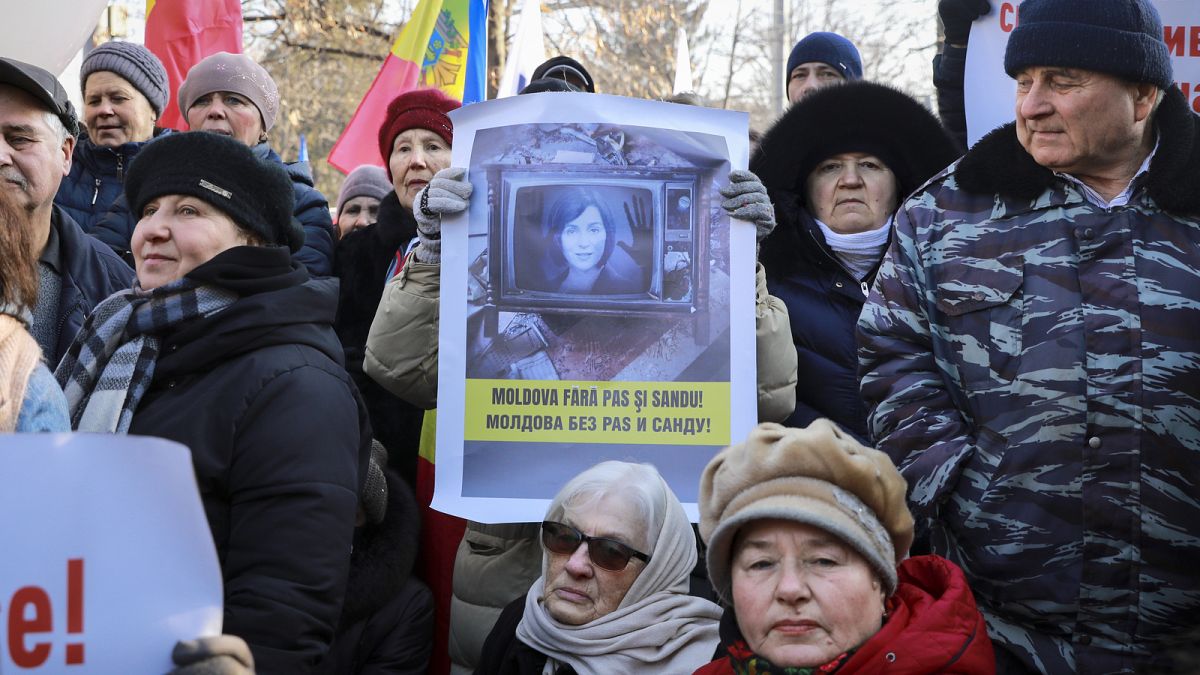European officials are warning about the risks of disinformation campaigns and vote-buying schemes that could potentially undermine the integrity of the upcoming elections in Moldova on October 20. The presidential elections and a referendum on EU membership will play a crucial role in determining the country’s future. Pro-European incumbent Maia Sandu is seeking re-election while a “yes” vote to EU accession would solidify Moldova’s path into the European Union. However, the country is facing an information war between pro-European and pro-Russian factions, with Russia accused of using hybrid warfare techniques to manipulate the vote.
There have been reports of Russian funds amounting to €14 million being used to buy anti-EU votes in Moldova. Pro-Russian oligarch Ilan Shor has also offered money in exchange for votes against EU integration. It is estimated that Russia has spent up to €100 million to undermine the electoral process through disinformation campaigns and other tactics aimed at influencing the outcome. With about 60% of Moldovans supporting EU membership, efforts have been made to demobilize voters to prevent the referendum from reaching the 33% turnout threshold needed for validity.
Despite the challenges posed by Russia’s interference, European Parliament’s Moldovan delegation chair Siegfried Mureșan believes that the EU’s support for Chișinău will ultimately outweigh the Kremlin’s influence. The EU sees the accession of Moldova and other candidate countries as a geopolitical imperative, especially in light of Russia’s deep-rooted presence in regions like Transnistria. While the region has been traditionally aligned with Russia, parties in Moldova are now distancing themselves from the Kremlin, and EU officials are determined to protect Moldova’s path towards EU membership.
In response to Russia’s efforts to destabilize Moldova, the EU has announced a €1.8 billion financing package to support the country’s journey towards EU integration. This funding, the largest since Moldova’s independence, is conditional on the implementation of key reforms, particularly in the judicial and economic sectors. The EU is counting on this investment to demonstrate the benefits of EU membership to citizens across Moldova and to counter Russian propaganda and disinformation campaigns aimed at delegitimizing the EU and the current Moldovan government.
Russia has been employing a wide range of hybrid warfare techniques to manipulate the upcoming elections in Moldova. Through strategies like Operation MiddleFloor targeting civil servants, counterfeit documents, and fake emails spreading false information about EU accession, the Kremlin aims to sow distrust in the EU and discredit President Sandu. These tactics are part of a larger pattern of using disinformation and division to destabilize regions and influence electoral outcomes. The Kremlin’s activities revolving around key electoral events make the upcoming vote in Moldova particularly vulnerable to interference.
Despite facing ongoing challenges from Russian interference, President Maia Sandu remains committed to Moldova’s EU integration, which has been a central focus of her presidency. While Sandu leads the polls in terms of voting intention, the upcoming elections could be a tough reckoning, especially if they head into a second round where her opponents could rally voters against her re-election. The EU’s unwavering support for Moldova and its determination to counter Russian influence in the region showcase the geopolitical significance of Moldova’s potential accession to the European Union and the ongoing battle against hybrid warfare tactics aimed at undermining democracy and electoral integrity.











